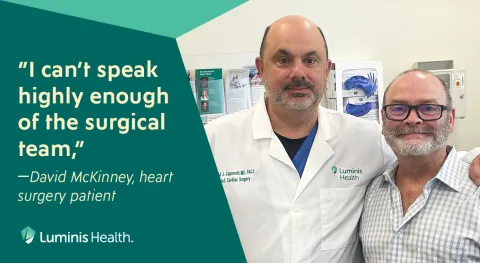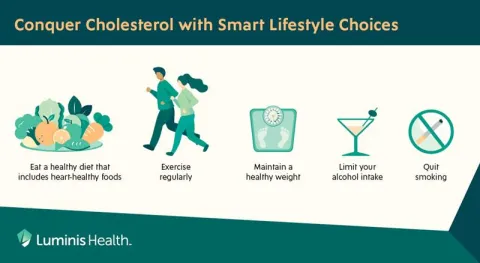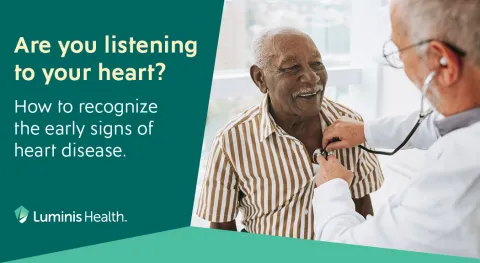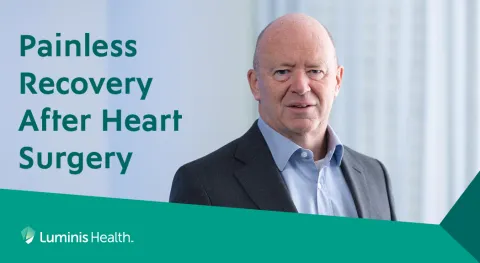Heart failure occurs when the heart muscle can’t pump enough blood to meet the body’s needs. Signs and symptoms of heart failure include:
- Shortness of breath.
- Swelling in the legs, ankles and/or belly.
- Sudden weight gain.
- Fatigue.
Jennifer Brown, MD, cardiologist and heart failure expert with Anne Arundel Medical Center, focuses on helping patients learn how to manage this disease. “Heart failure is one of the top reasons patients are admitted to hospitals across the country, and the number-one reason patients are readmitted to the hospital within 30 days after discharge,” Dr. Brown stresses.
While most of the time heart failure cannot be cured, it can be managed. Dr. Brown recommends a four-pronged approach.
See Your Cardiologist
“If diagnosed with heart failure while in the hospital, the most important thing you can do to keep from being readmitted is see your cardiologist within seven to 10 days post-discharge and as advised after that,” Dr. Brown says. Follow-up visits with a cardiologist are critical, since medications started in the hospital are often adjusted after discharge to optimize symptoms.
Take Your Medications
Not taking your medications as directed will likely lead to ER visits. Medications for heart failure — as well as other chronic conditions such as high blood pressure, high cholesterol and diabetes — should be carefully managed. “The heart is negatively impacted when other disease states are not well controlled. For example, poorly controlled diabetes, uncontrolled hypertension and untreated sleep apnea can all worsen heart failure,” says Dr. Brown. “Many patients misunderstand how connected the body is.”
Adopt a Healthy Lifestyle
Lifestyle changes and self-management can go a long way toward improving your symptoms and overall quality of life. Dr. Brown recommends:
- If you smoke, quit.
- Manage fluids, drinking no more than 2 liters daily.
- Weigh yourself daily. Sudden weight gain can signal fluid retention. Contact your cardiologist if you gain 3 pounds in one day or 5 pounds in one week.
- Choose a heart-healthy diet. Limiting sodium is especially important for people with heart failure.
In addition, staying active, getting enough sleep and avoiding heavy alcohol consumption and other drug use can reduce symptoms and prevent hospitalization.
Manage Depression
“It’s common for cardiac patients to experience depression, and when left untreated, patients may lose motivation to exercise, eat a heart-healthy diet, take their medications … and the list goes on,” Dr. Brown says. “If there’s any question of depression, making sure it’s treated appropriately is critical.”
Your best defense against heart failure is prevention. Anne Arundel Medical Center offers Heart Health 101, a free class that delivers all the information you need to achieve a healthy heart for life.
The class helps you understand:
- How the heart works.
- Causes of heart disease.
- How to manage heart disease risks.
- Symptoms that something is wrong.
- Diagnosis and treatment for heart disease.
- Early heart attack warning signs for men and women.
Register for the next Heart Health 101 class on August 15 at 6 pm.
Medical school taught Dr. Brown how to treat heart failure. But her mother-in-law’s experience with it taught Dr. Brown how to care for people with heart failure. Read Dr. Brown’s inspiring personal story.
Find out how you can get involved in bringing cardiac surgery to AAMC.
Author
 Jennifer Brown, MD
Jennifer Brown, MD, is a cardiologist and heart failure expert with Anne Arundel Medical Center.





